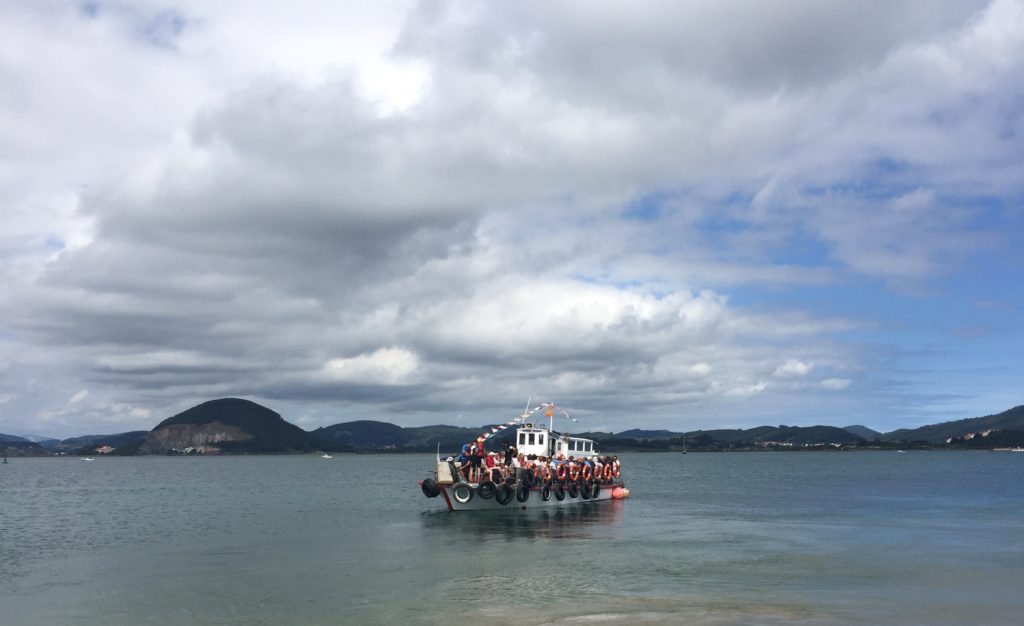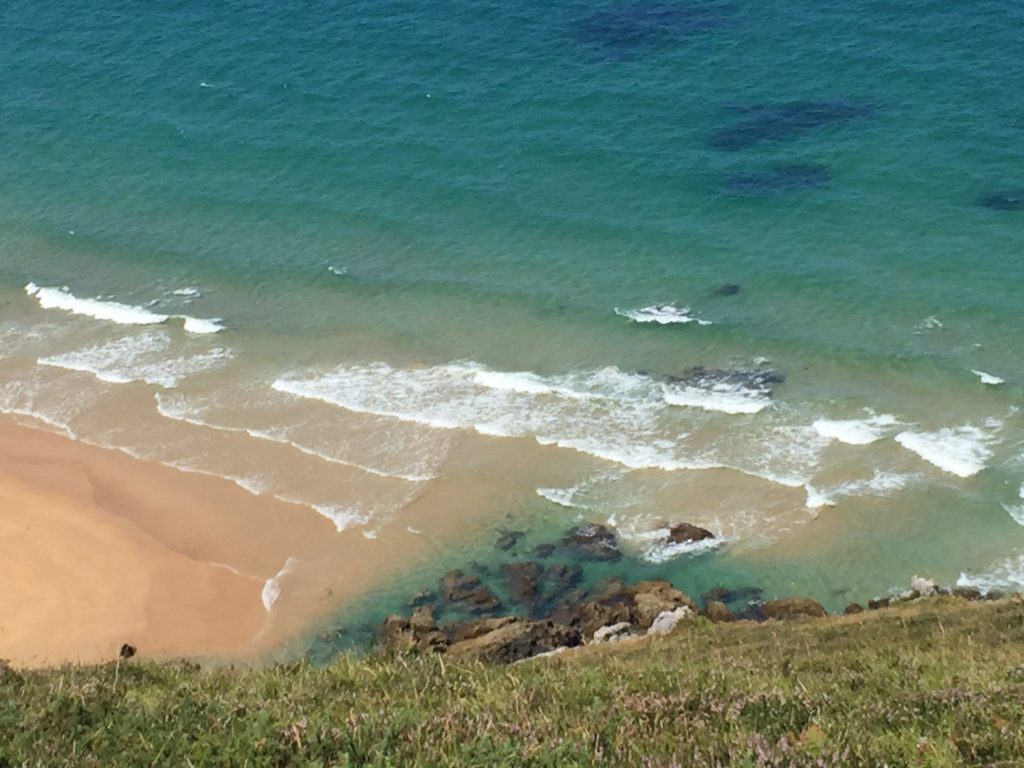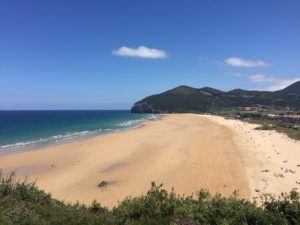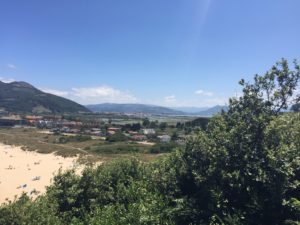breaking the law
I met Pablo at the Liendo albergue beside the church, where I had chosen a bottom bunk and he took the top, making sure I wanted the lower one. I joked about my terrible feet “so no ladder, please,” and he joked about his tired legs, and so we laughed together. I had seen him and his friend Juan Carlos in the albergues, but we had never met. Opposites but well matched, where Juan Carlos was lean, light-haired, with glasses and an eager smile, Pablo was massive, like a bull made man, with dark hair and an intensity to his sincerity that made you stop and really listen to what he was saying.
Pablo had decided he would use a chair to step up into the bunk, but the ridiculous young American had piled things on it – yes, the taverna orator slept at the foot of my bunk in a cot – so I set my pack by the chair beside my bed, to keep one available. I fell asleep early, but awoke to hear Pablo enter the darkened room and stop in front of the messy chair. He sighed, I’m sure not wanting to move someone’s belongings, but how to climb into bed?
I quietly said, “Pablo,” and he turned toward my voice. I patted the chair beside the bed, where he could not easily see.
“Thank you, Barbara,” he said, sounding quite pleased, and arranged items on his bunk as I snuggled into my sleeping bag. He said soft words in Spanish I did not recognize, then immediately translated them for me: “Sleep well, Barbara.”
I said, “You too,” my drowsiness especially cozy with this sweet wish for me.
He climbed into his bed later, and through the night I felt terrible as I realized my mistake. I hadn’t thought to give this huge man the lower bunk; as he carefully, carefully turned over, I understood that his entire weight was perched on a very flimsy platform, defying the laws of both gravity and poor construction, while my small self had the security of the sturdy lower bunk. Next time, I vowed.
In the morning, with no trace of resentment, he gave me two yogurts for breakfast, he and Juan Carlos offering “Buen Camino!” as they strode away. We kept meeting up here and there along the way, so that by the time I was standing in line on the beach for the Santoña ferry, I was not surprised to hear him call my name.
“I am not so sure about this boat,” he said, arriving behind me with Juan Carlos, and we all took turns pointing out laughable deficiencies in the aging ferry, jokingly convinced we were going to perish in the low-riding boat packed with pilgrims and tourists.
“At least we will die among friends,” I countered.
As we stood in line, and eventually boarded like sardines into a tin, and even over the roar of the ferry’s motor, Pablo asked me questions about my life, and I answered them, every one. By the time we got across the water, he wanted to keep in contact, and so we exchanged emails and phone numbers. He wanted to show me around Barcelona, where he lives, but he would be working in another city on the day of my flight layover in Barcelona, the day I would leave Spain.
I asked, “What work do you do?”
Pablo’s expression became quite serious, and I felt concerned as I waited for his reply: “I am a policeman, in Barcelona.” Then he looked into my eyes, waiting to see how I would respond.
“Oh good!” I blurted happily, other less pleasing possibilities dissolving from my mind. “A policeman! That’s wonderful! My father was state police. He taught me something important: he said, ‘You must enforce the spirit of the law, not the letter of the law.'”
“I agree,” Pablo offered, seeming relieved. And Juan Carlos? He was a cop, too. So I had been escorted more safely than I could possibly have known. For days now.
* * * * * * * * * * * * * * * * *
At Playa Berria, between Santoña and Noja, the sand was like powder. Sunny skies and gentle waves beckoned like a sweet voice, so I stripped down to my underwear and tank top and walked into the surf. And just like that – for the first time in my life, I swam in the sea.
The water was cold until I got used to it, then…perfect. The waves bumped against me like a horse wanting to be scratched. They made me giggle and laugh like a little kid, and massaged my tired legs, the sand cradling my healing toes. When bigger waves came, my chest and then my face got wet. Salt. I tasted the sea. Delicious. Finally, I dove in while it was calm, and swam.
I eventually got out of the water and lay on my towel until I was dry, the sun not too hot, the breeze not too cool. I drowsed, thinking, I will remember this day at the beach all my life. As I drifted off into a nap, I saw again the shining turquoise water rolling over me, safe under the arc of the wave as if under a loving mother’s arm.
I woke to eat a lunch of quick snacks, realizing the afternoon was drifting by like the soft clouds above. I got dressed, packed up, and hiked up the beach to rejoin the Camino as it ascended a steep cliff on what looked like a goat path.
After several kilometers, I reached the Noja albergue to learn that I had played too long: the albergue was full. Completo is the letter of the law at the albergues. Finding the turismo, I was assured of a bed at a private albergue in Meruelo, another 6km away it turned out, after the classic reassurance regarding all distances on the Camino: “Just 2km.”
I arrived, with tired feet and sunburned legs, at 8pm, not my usual three-o-clock. But since it’s light until almost 10pm in Spain, no problemo. A community dinner of over a dozen peregrinos offered good food shared in a spirit of bonding comraderie; a shower, a comfy bed, and I fell asleep easily.
Missed a bed for swimming in the sea. Oh yes, I would most definitely do it again. Most delightedly so.



